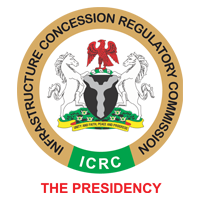ICRC & NATIONAL POPULATION COMMISSION CONSIDER THE USE OF PPP FOR THE AUTOMATION OF THE PROCESS OF REGISTRATION OF BIRTHS, DEATHS, ETC
Abuja, Nigeria; 5 August, 2015:Director General of the ICRC, Mr. Aminu Diko, has expressed the readiness of the Commission to work with the National Population Commission in the automation of the process of the generation of national data on deaths, births, marriages, stillbirths, etc in the country through Public Private Partnership (PPP) option. He expressed this view through the Commission’s Executive Director, PPP Resource Department, Engr. Chidi Izuwah, during a courtesy visit by the National Population Commission’s (NPopC) Committee Team on Automation of Civil Registration Process on Wednesday in Abuja.
The ICRC DG while welcoming his guests explained that the role of the ICRC was principally to regulate the procurement of infrastructure services through Public Private Partnership. He noted that given the ‘wide infrastructure gap and depleting government resources’ in the country at the moment, ‘working with the private sector is a sure pathway towards achieving NPopC’s big mandate’. He recalled that ICRC had guided the Federal Ministry of Interior on a similar project in which the Ministry successfully procured a concessionaire for the Automation of Activities of the Citizenship and Business Department. The project is currently under implementation.
Responding, Dr. Festus Uzor, the Chairman of the Vital Registration Committee and Federal Commissioner Representing Enugu State on the NPopC Board, noted that part of the mandate of the agency was to have a comprehensive register of deaths and births in the country. He added that when the NPopC Board was reconstituted in 2012 by the Federal Government, it was given a mandate to achieve 100% registration of births, deaths, marriages, stillbirths etc in the country by the end of year 2015. According to him, as of date, the agency had modestly achieved 42% birth and 10% death registration.
Realising the urgent need to upscale the pace of achieving this mandate, the NPopC has thought outside the box, hence the need to automate the registration process using private sector resources to avoid full dependence on government’s limited resources.



